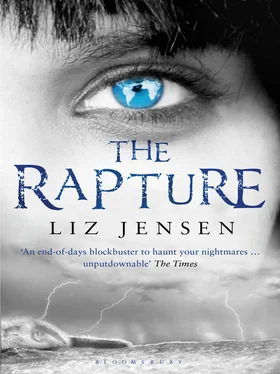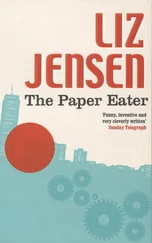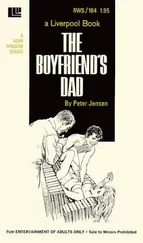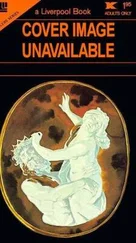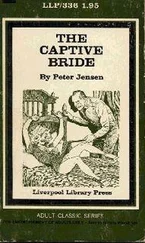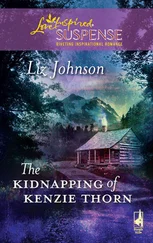When I first encounter Bethany Krall I am two weeks into what has been billed as a six-month posting, filling in for Joy McConey, a psychotherapist who has left the institution on a sabbatical that I assume to be a euphemism for some unspoken disgrace. None of my new colleagues seems keen to discuss her. There’s a high turnover in places that have a reputation for being human dustbins. Most of us are on flexible contracts. This is not a prestige appointment. There is talk of new cutbacks which could lead to Oxsmith closing for good. But raw from my enforced exclusion from what rehab called ‘the cut and thrust’, I can’t afford to be choosy about my employment. In the absence of a long-term plan, part of my persuasive argument to myself, in deciding to resettle, is that a short-term strategy in a strange place is better than none, in a familiar one.
Amid the broken staplers, the withered spider plant and the old styrofoam coffee cups of Joy McConey’s vacated office is a greetings card, the kind that’s ‘left blank for your personal message’. Inside, in small, frantic-looking handwriting, someone has stated, cryptically: ‘ To Joy. Who truly believed. ’ Truly believed in what? God? An end to the grief in Israel and Iran? An inmate’s psychotic fantasies? The signature is illegible. I am no great fan of spider plants. But something — my frail, inconsistent inner Buddha, perhaps — prevents me from taking life in a gratuitous fashion, even if it’s low in the food chain. Let the plant live. But don’t encourage the fucking thing. It seems that mould can grow on coffee despite a plastic lid. I pour the dregs on the pot’s asbestoid soil, and chuck the cup into the bin to join Joy’s card.
I am not a nice person.
I have gleaned this much from my fraught fellow-workers: I’ve been assigned Bethany Krall as one of my main cases because no one else wants to deal with her. As the newcomer, I have no choice in the matter. Bethany has been labelled intractable by everyone who has dealt with her so far, with the exception of Joy McConey, whose notes are not in the file — very possibly because she never wrote any. While I’m not nervous about having Bethany Krall on my list, I am not enthusiastic either. My perspective on physical violence has shifted since my accident. I now want to avoid it at all costs, and have taken every possible measure to do so, with the exception of having my strangulation-length hair cut short because I’m vain about it. But perhaps, with Bethany Krall on my list, I’ll be visiting the hairdresser after all: according to the case-notes, my new charge is something of an extremist in the aggression department.
After ten years of dealing with criminally psychotic minors I am used to stories like Bethany Krall’s, but the reports of her mother’s murder still manage to stir up a familiar, heart-sinking queasiness, a kind of moral ache. The full-colour police photos are shocking enough to make me blink, redirect my gaze out of the window, and wonder what kind of person decides to opt for a career in forensic pathology. Apart from the turbines in the distance, there isn’t much to comfort the eye. The shimmering tarmac of the deserted basketball court, a line of industrial-sized rubbish bins, and beyond the electrified perimeter fence, a vista that twangs a country-and-western chord of self-pity in me. For a brief moment, when I first arrived, I thought of putting a photo of Alex — Laughing Alpha Male at Roulette Wheel — next to my computer, alongside my family collection: Late Mother Squinting into Sun on Pebbled Beach, Brother Pierre with Post-Partum Wife and Male Twins, and Compos Mentis Father Fighting Daily Telegraph Crossword. But I stopped myself short. Why give myself a daily reminder of what I have in every other way laid to rest? Besides, there would be curiosity from colleagues, and my responses to their questions would seem either morbid or tasteless or brutal depending on the pitch and roll of my mood. Memories of my past existence, and the future that came with it, can start as benign, Vaselined nostalgia vignettes. But they’ll quickly ghost-train into malevolent noir shorts backlit by that great worst enemy of all victims of circumstance, hindsight. So for the sake of my own sanity, I apologise silently to Alex before burying him in the desk alongside my emergency bottle of Laphroaig and a little home-made flower-press given to me by a former patient who hanged himself with a clothes-line.
The happy drawer.
Before taking the lift up to the room christened, with creepy institutional earnestness, the Creativity Workshop, I go through the rest of Bethany Krall’s file, setting aside the more detailed notes of her drug regimen and physical check-ups to glance at later. The facts are stark enough. Two years ago, on April 5th, during the Easter school holidays, Bethany Krall stabbed her mother Karen to death with a screwdriver in a frenzied and unexplained attack. At fourteen, Bethany Krall was small and underweight for her age. Remarkable, then, that her mother’s savaging should have been so ferocious and sustained: the child had drawn huge strength from somewhere. But there was no question she had committed the murder: the house was locked from the inside and her fingerprints were all over the weapon. Bethany’s father Leonard, an evangelical preacher, was away at a prophecy conference in Birmingham at the time, having left that morning. He had spoken to his wife and daughter separately just an hour before the tragedy, and reported that Karen was concerned about Bethany’s loss of appetite, while Bethany herself had complained of severe headaches. Karen Krall had put the phone on the loudspeaker, and they had all prayed together. This was a family tradition.
At ten-thirty that evening a neighbour heard violent screaming and raised the alarm, but by the time the police arrived Karen Krall was dead. They found her daughter curled on the floor next to her in a foetal position. In this photograph, you don’t see Bethany’s face, but you see the part of her mother’s that isn’t blood-covered. The screwdriver is rammed deep into her left eye, its yellow plastic handle protruding. It has an odd jauntiness, like a dinner-fork stuck upright in a joint of meat cooked rare, and abandoned mid-meal. The pool of blood on the floor has developed the kind of skin that acrylic or emulsion paint will form. Another photograph, taken from above, shows an open waste bin containing, according to the notes, ‘the charred remains of one King James Bible’. A physical examination immediately after the tragedy showed recent bruising on Bethany’s body, particularly the upper arms, and damage to both wrists. From this it was concluded that a severe physical struggle had taken place.
On the next page is a happier portrait of the Kralls, taken a year before the family imploded. It shows a dark-haired, sharp-faced child, and on either side of her, the parents: a good-looking father and his pale, more meagre wife. They are all smiling widely — so widely, in Bethany’s case, that the braces on her teeth take centre stage. Unhappiness takes many forms, I reflect. But happiness, or the semblance of it, can be as limited and unhelpful as the word ‘cheese’. Bethany’s teachers described her as highly intelligent but disturbed. Reading between the lines I suspect that like so many kids of her generation, she is a classic product of the last decade’s ‘interesting times’, of its food shortages and mass riots and apocalyptically expanded Middle East war, and in her case, more specifically, of the Faith Wave that followed the global economic crash: preacher’s strong-headed teenage daughter, who questioned the dominant role of fundamentalist Christianity in her life and rebelled. At school she was self-destructive, and had very possibly had sexual relationships with boys, but she paid attention in class, showing a particular aptitude for science, art and geography. There were no obvious signs of mental illness, though at the end of that spring term, in a staff meeting, concern was expressed that she seemed ‘more unhappy than usual’.
Читать дальше
